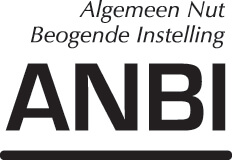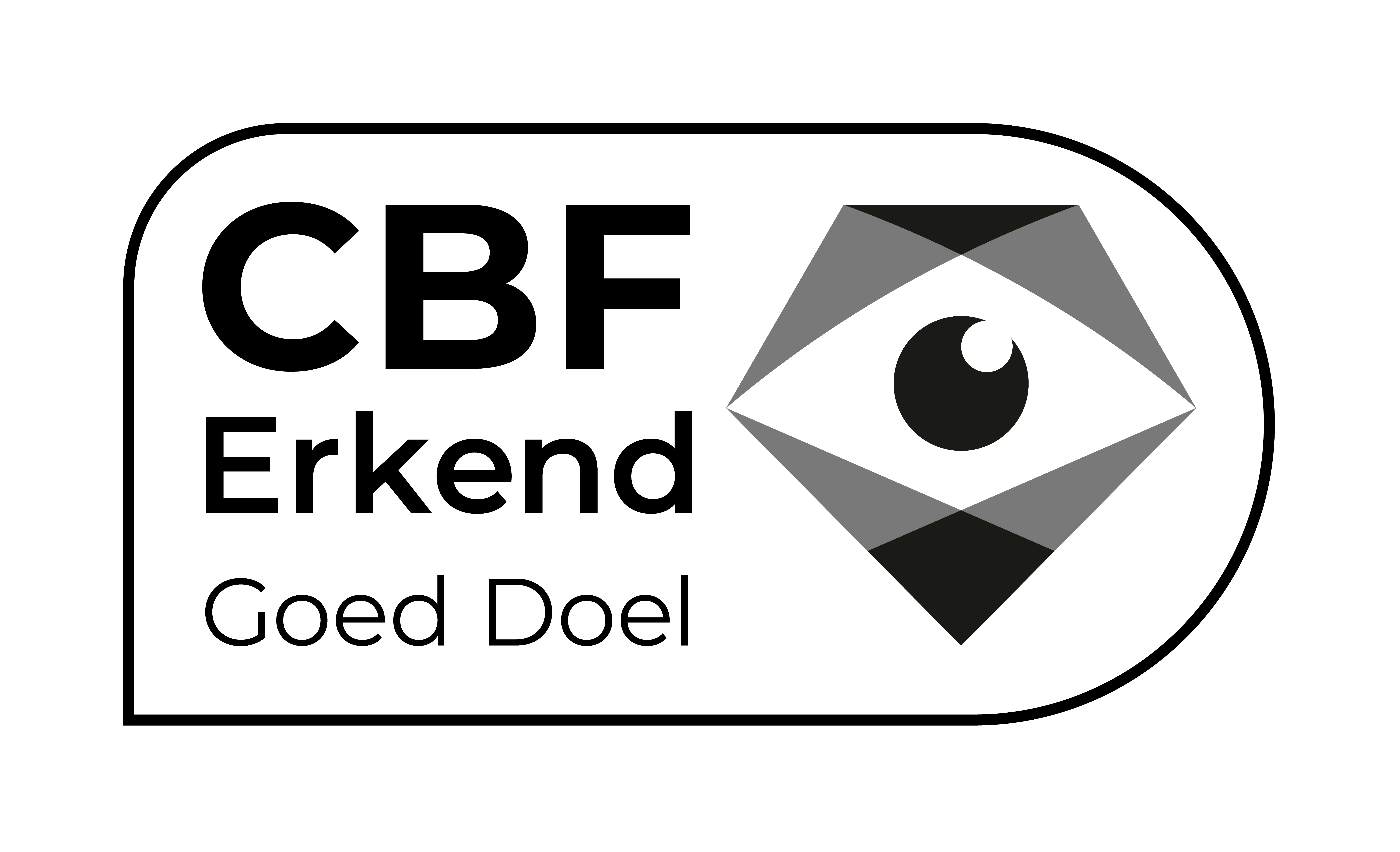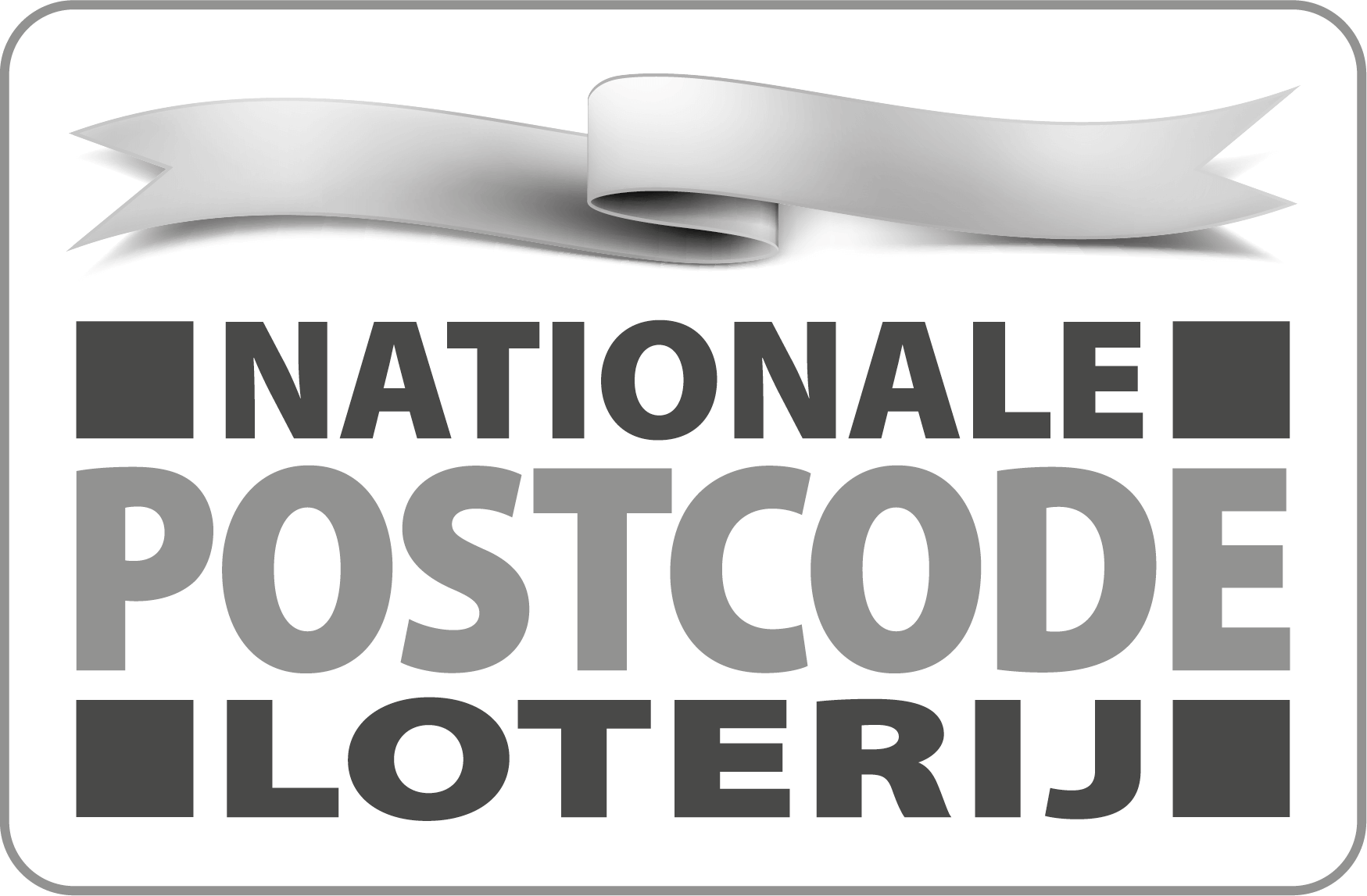News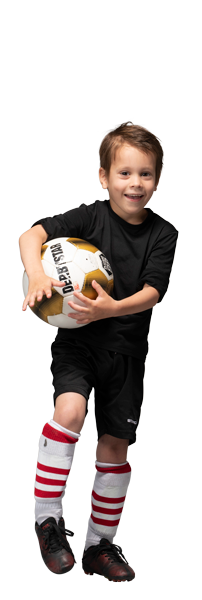
The days are flying by and the summer holidays are almost here. The back office of the Gelderland Youth Fund for Sports and Culture will be closed from July 17 to August 12 due to vacation.
Important: Please send new applications accordingly before July 17 Then we can ensure they are processed in time for the start of the new sports and cultural season.
Everyone should be able to participate
Arnold Devreese is committed to equal opportunities through sports and culture. Not every child can automatically participate in sports or culture. The Gelderland Youth Sports and Culture Fund makes it possible for children from families with fewer financial resources to participate.
Since September 2024, Arnold Devreese has been a board member
(secretary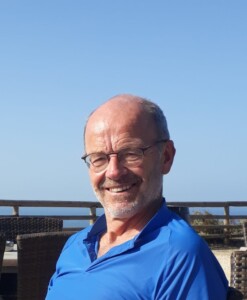 (s/vice-chairman) is committed to this wonderful cause. "Participation is not only important, it's essential," he says with conviction.
(s/vice-chairman) is committed to this wonderful cause. "Participation is not only important, it's essential," he says with conviction.
From the SER to the Youth Fund – a life full of social involvement
Arnold (67) lives with his partner Jenny in Well (Bommelerwaard) and has recently started enjoying his retirement. But he's not one to sit still. For many years, he was director of the Social Affairs Advisory Board at the Social and Economic Council (SER), where he worked on issues such as education, pensions, healthcare, and social security. His passion for equal opportunities is evident in the SER advisory report "Healthy Growing Up, Living, and Working for Everyone."
which he co-authored.
Sporty Burgundian with a passion for culture
Lifelong learning and exercise: that's Arnold through and through. "I run three times a week, do ballroom dancing, tennis, and road cycling. I also really enjoy theater, films, music performances, and reading." Culture is just as important to him as sports. It's no wonder, then, that he's completely devoted to the Youth Fund.
Why the Youth Fund? "I know what it feels like not being able to participate."
Arnold grew up in a farming family in Belgium, where participating in sports wasn't a given. While his classmates went to football, he worked on the farm. That experience shaped him. "That's why I want to give children today the opportunity to discover their talents."
hedges.”
The best part? “Making an impact together!”
What appeals to him most about his role at the Youth Fund? "The energy that's released when we can truly make a difference together. Seeing how dedicated volunteers – like the Meerkrachten – are to helping children touches me deeply."
Call to parents: “Ask for help – the Youth Fund is here for you!”
Arnold addresses parents struggling financially: "Don't sit idle. Ask for help for your child. The Youth Fund is specifically there for families like yours. Give your child the opportunity to grow, move, and flourish."
Future dream: a fund that becomes redundant
What does Arnold hope for the future? "That we are so successful in creating equal opportunities that a youth fund will one day no longer be necessary. Until then, I will continue to dedicate myself wholeheartedly to this cause."
Looking back at twelve year Youth Fund
Christa Compas was involved with the Youth Fund for Sports & Culture for over twelve years. In December 2024, she stepped down from the Supervisory Board. Looking back, she recalls a sense of decisiveness and positivity. She considers the Youth Fund a truly "feel-good" fund: just try finding someone who doesn't like children playing sports and singing.
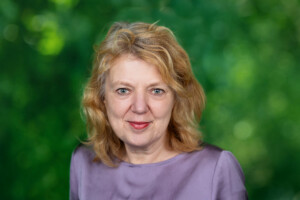
Turn a dime into a quarter
Compas is a child of the 1970s. Their motto back then? Progress is possible; you must always keep trying to turn a dime into a quarter. By creating and seizing opportunities. "That's how I've always experienced it. I firmly believe that this is also possible for the current generation of children – regardless of their home situation, they should be given opportunities to participate," says Compas.
Football bag instead of diagnosis. When she first encountered the Youth Fund in 2013, she was working at an educational consultancy in Amsterdam. The agency sent school social workers, experts in reading and math, and psychologists to schools to conduct tests with children. "Then we'd get reports, and children would be given a 'label.' I increasingly started wondering: what good is a research report and a diagnosis? Don't (some) children benefit more from positive experiences and concrete activities? Couldn't we better support them in sports, for example? Grab a football bag, put on some shoes, and join a team. Wouldn't they benefit so much more from that? It was by chance that I was told about the Youth Fund."
She was incredibly impressed by the organization's relative simplicity. Improving children's well-being and development simply by allowing them to participate in sports (sports and culture were still two separate funds at the time, ed.).
Sport builds character
"Sports is so much more than just kicking a ball around or scoring a goal. I've seen that with my two children too. It's learning to cope with setbacks, showing up on time, developing discipline (even when you don't feel like it), belonging, experiencing a sense of responsibility, and persevering—it builds character. Moreover, at a sports club, you often break out of your social bubble. And that enriches your life." She adds that it's obviously important to get children moving in these times of couch potato binges and obesity. But her deepest motivation for contributing to the fund lies in the social and personal skills that sports develop.
Fund that everyone loves
According to Compas, everyone thinks that allowing Dutch children to play sports, sing, and dance is a good idea. A fund that makes this possible is endearing. "It's much less controversial than, say, development aid. The Youth Fund is truly a huge 'feel-good' fund. It's no wonder that sports heroes like Marianne Vos are happy to join as ambassadors. It always gave me a positive feeling, too."
It's also a modest fund. We just fix it and don't have to be on TV all the time. Activities are often local, and the children are always the main goal – not the fund or its administrators. For me, that's the strength of the Youth Fund, remaining both approachable and modest. This 'simple' formula has led to the support of more than 80,000 Dutch children annually. "Amazing, isn't it?"
Most beautiful memory
If she had to recall one memory that stood out in all those years, it was the start of the Tour de France in Utrecht in 2015. "Parallel to the starting stage, the Youth Fund also organized a starting stage. But for children. From Utrecht to Paris. That was fantastic! I didn't cycle myself, mind you; I'm not very athletic. I row, but my children certainly didn't get their athletic genes from me!"
Christa Compass is the learning approach program manager at the Realization Unit, a delivery unit of the Ministry of Education, Culture and Science. She is currently addressing the persistent teacher shortage. From 2013 to 2024, she was involved with the Youth Fund for Sports and Culture, first as a board member and later as a member of the Supervisory Board.
>> More information about our Supervisory Board
Farid Gamei, director of the Dutch Martial Arts Authority, joined the Supervisory Board of the Youth Fund for Sport & Culture this year. He is an avid athlete and has won national and international titles as a professional kickboxer. What does he want to achieve for the Youth Fund? He hopes to bridge the gap between policymakers and the target group.
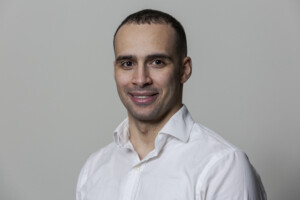
It's safe to say that sports are in Gamei's DNA. He's been involved in sports from a young age, attended sports training programs, taught (kickboxing) as an instructor, pursued a top-level kickboxing career, worked for the Johan Cruyff Foundation, and is a board member of the Dutch Sports Council. To top it all off, he became the director of the Dutch Martial Arts Authority. "I know sports at all levels: from practicing personally to teaching, managing participation in sports, and my children's sports clubs," says Gamei.
Discipline and respect
As a kickboxer, he competed at the highest level and won multiple titles. He still works out at least five times a week. "As a kid, I also did judo. And I played soccer for a while. But I was the one on the team who could get really irritated if my teammates had gone out the night before, if they weren't taking it seriously. Maybe that's why I focused solely on kickboxing from the age of fifteen."
What has sport given him? "The core values of martial arts are values that will benefit you for the rest of your life: self-control, discipline, perseverance, and respect for one another. All sports teach you similar values, but in martial arts, discipline and respect are particularly important." He emphasizes that you don't have to compete at a high level. At all levels, sport brings self-confidence, social connections, and, above all, fun!
Growing up in the middle of the target group
Besides kickboxing at a high level, Gamei worked as a neighborhood sports coordinator for the municipality of Amsterdam and organized sporting events in his (former) neighborhood. He could often be found on the streets and at Cruyff Courts. Even in his younger years, he was involved with the Youth Fund's target group: "I was born and raised in Amsterdam East. The Oosterparkbuurt, the Transvaalbuurt: those are the neighborhoods where the Youth Fund's target group is located. So I know them well from my childhood, but also from when I worked as a neighborhood sports coordinator and taught at various kickboxing schools. Pretty much all those schools were affiliated with the Youth Fund."
Life lessons: everyone has the right to them
At the end of 2024, the opportunity arose to join the Supervisory Board of the Youth Fund for Sports & Culture. “In all my roles, I've seen what participating in sports means for children. Enjoying exercise at a young age also makes you want to exercise later in life. In addition, there are the life lessons and opportunities it brings. I believe everyone has the right to that. It shouldn't be the case that just because your parents aren't well-off, you can't participate. The Youth Fund plays a key role in that. They're in the right places and can give those who need it that push.” He wants to contribute to that as directly as possible through his new role.
From street to council
In the words of a good friend of Gamei, he went "from the street to the Board." He brings all his personal and professional experience to the council table. "Through the Supervisory Board, I want to not only oversee and advise on management, but also connect with the target group. I come from the neighborhoods where Jeugdfondskinderen is located. I know the target group, I have a feel for it. And more broadly, I see that the gap between administrators, the policymakers, and the target group is widening. My goal is to narrow this gap a little in the coming years."
>> More information about our Supervisory Board
Photo: Henriëtte Guest
Maarten Divendal waves af as a member of the Supervisory Board
Maarten Divendal joined the board of the Youth Fund for Culture in 2014 and stepped down from the Supervisory Board of the Youth Fund for Sport & Culture at the end of 2024. He reflects on ten years of experience in culture, social work, and youth participation.
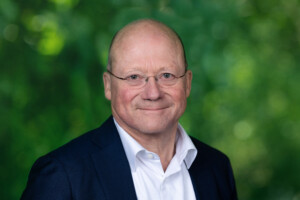
Divendal has always been an enthusiastic advocate for better youth policy, first as an alderman in the municipality of Haarlem and later as mayor of the municipality of Ronde Venen.. It was a mayor friend who nominated him for a board position on the Youth Fund in 2014. This move would lead to his close involvement with the organization for a full ten years. "He knew my passion for youth and affinity for culture, so it was a perfect fit," says Divendal.
'Good' DNA
Organizing summer camps, establishing a youth center in Heemstede, and involving children in sports: social work is in Divendal's DNA. He has always wanted to ensure that children—from all backgrounds—can participate in all kinds of activities. He inherited this "doing good" spirit from his childhood and, in turn, passes it on to his two children. One is a leader in the local Scout troop, while the other helps out on a boat trip for people with disabilities for three weeks during the summer months. "If you're well off, you should also dedicate yourself to those who are less fortunate. That benefits our society as a whole."
Multiple forces key
He believes the focus on young people is perfectly logical. They are the future. "So these young people should be given the opportunity to develop to their full potential. Even if there are financial obstacles at home."
The Youth Fund's focus is on removing that financial barrier. But Divendal doesn't see it as the most important task: "Removing that barrier is really only a secondary step: you first have to reach these children. The Youth Fund does this through Meerkrachten (formerly intermediaries), the people in the field who are in close contact with children. I've always found that to be an incredibly effective approach."
Talent development through sports and culture
Divendal witnessed the merger of the Youth Sports Fund and the Youth Culture Fund in 2018. "That definitely led to a professionalization boost. But it was good that the two merged anyway. Essentially, for me, it's about children discovering what they're good at. In a group, on the field, but maybe you're more of a soloist and thrive on the flute. Sport or culture: both can be equally important in a child's life and development." He cycles himself. He also goes to the gym weekly. He's also a passionate cultural enthusiast and enjoys going to the theater or cinema. He emphasizes: "Children can also experience culture without playing a musical instrument!"
Broadening
His time as the fund's supervisor has come to an end. Divendal hopes the organization has a long and distinguished career ahead of it. And that the fund will continue to broaden its horizons in the future. "Besides paying membership fees or tuition, it might also be worthwhile to broaden your horizons where possible. Helping refugee children or children with disabilities. This could be achieved by collaborating with other organizations, as is currently happening with Sam&."
Maarten Divendal has been mayor of the municipality of Ronde Venen since 2011. From 2014 to 2024, he was involved with the Youth Sports & Culture Fund, first as a board member and later as a member of the Supervisory Board.
>> More information about our Supervisory Board
Deborah Lauria new member of the Supervisory Board
Deborah Lauria is the director of Ieder(in), a national organization that represents the interests of people with physical disabilities, intellectual disabilities, or chronic illnesses and their families. This year, she also became a member of the Supervisory Board of the Youth Fund for Sports and Culture. Sports and culture have shaped her: they were fundamental factors in her development. She wants every child to have this opportunity.
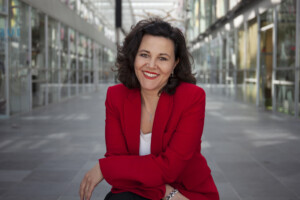
"That people can't participate in sports and culture because they can't afford it, in a wealthy country like the Netherlands, I find it scandalous and unacceptable," says Lauria. In her ideal world, the Youth Fund wouldn't exist at all. But now that it does and is so necessary, she's happy to contribute.
Lucky bastard
Lauria grew up in a village just outside Rome. Her parents took her to the theater, museums, and on vacation. "I realize I've been incredibly lucky in life. Participating in sports and culture, studying, discovering other cultures: it was a given. At the same time, they were essential parts of my development; they shaped and enriched me enormously. But unfortunately, for many people, it's not at all a given."
She's incredibly motivated to change global inequality. It's no coincidence that she worked for Plan Nederland, VluchtelingenWerk (Refugee Council), Client Interests, and is currently the director of Ieder(in). It all began when, during her International Relations studies in Rome, she took elective courses taught by NGOs. "Those classes covered all sorts of topics, from refugee work to children's rights. They taught me how the world really was, how the people in this world were doing. Standing up for their rights, reducing the existing gaps—that's what I wanted to do."
Culture shapes character
Experiencing and experiencing culture—you don't have to actively engage with it to be touched by it—has made Lauria a more complete person. She's convinced that through cultural experiences, you learn to recognize and express your emotions, experience joy, and feel supported in difficult times. "Moreover, actively participating in culture and sports contributes to your social skills. You learn the importance of being on time, of going even when it's raining, playing in a team, a bit of discipline, and working together: it builds character!"
Her own children were allowed to try anything, as long as they finished the year. Hockey, gymnastics, soccer, drumming, singing: it all came up. "One is now pursuing a professional career in music and composes her own music. The other sings beautifully and enjoys dancing, but as a hobby. They're completely different, but for both, sports and culture are an important part of their development. Just like for me. I want that for all children – even if the financial situation at home doesn't allow it, sports and culture should be accessible."
Promoting equal opportunities
The Netherlands has so much money, opportunities, and sports facilities… The fact that people can't share in these opportunities is a real problem for society as a whole! If equal opportunities don't exist, it's bad for everyone, not just the people directly affected. Poverty and inequality ultimately mean higher costs for everyone—in healthcare, benefits, and so on. Moreover, a society in which a widening divide is developing is a dislocated and dissatisfied society, one that functions far from optimally.
Through the Supervisory Board of the Youth Sports & Culture Fund, she hopes to contribute to simply reaching even more children. "We currently reach about half of the children who could use our help. I want to be able to reach everyone who needs it. We'll always have to navigate the political winds that are blowing: we, the Supervisory Board, are vigilant about that. But one way or another, we'll ensure that our reach is maintained at least at the same level."
>> More information about our Supervisory Board
We proudly introduce Nathan Stukker as the new chairman of the board of the Gelderland Youth Fund for Sport & Culture. Nathan, who lives in the beautiful city of Apeldoorn with his wife and three children, has a rich background as a city councilor and now works on social issues through the consultancy BMC. But who is this man so passionate about child development? 
Sports and Culture: Nathan's Passions
Nathan isn't just a manager; he's also a passionate athlete. "I enjoy cycling through the Veluwe and along the IJssel River, and sometimes I run," he says. He's also an active soccer coach for his son's team. For Nathan, sports and culture aren't just hobbies; they're essential components of a healthy and happy life.
Why Nathan is committed to the Youth Fund
For Nathan, his motivation for volunteering with the Youth Fund is clear: "Sports and culture are incredibly important for children's development. They not only promote their health, but also social connections and enjoyment." He wants every child to have these valuable experiences, regardless of their background.
A close-knit group within the board
Nathan already has a positive impression of the board. "We have a great team where everyone shares the same intrinsic motivation. It feels good to work together towards our goal: reaching as many children as possible," says the new chair. The enthusiasm in the meetings is infectious and gives him a lot of energy.
Collaborating with local communities
A key aspect of Nathan's vision is collaboration with local communities and organizations. "The Youth Fund needs to be well-informed about what's happening in the municipalities. Short lines of communication are essential," he says. He emphasizes that both the board and the advisors and intermediaries play a role in maintaining these contacts.
A message for the children and young people in Gelderland
If Nathan could convey one message to the children and young people in Gelderland, it would be: "Find the space to discover what suits you, both in sports and culture." He hopes all children will seize this opportunity to develop their passion.
Lowering barriers for an accessible future
With his vision for the future, Nathan wants to lower the barriers for parents and children. "Ultimately, our goal is to remove barriers for parents and children, so they can participate in sports and culture in a way that suits them. This must always be central; also in our collaborations with partners and other involved organizations," he concludes.
With Nathan Stukker at the helm, the Gelderland Youth Fund for Sports and Culture promises a future full of opportunities and possibilities for all children in the region.
Jack Opgenoord is one of the founders of the Jeugdsportfonds Limburg (the predecessor of the current Jeugdfonds Sport & Cultuur Limburg). He will be passing the baton at the end of this year. "The Jeugdfonds' 20th anniversary is a good time to do so. Our current coordinator, Kim Wijnants, will be taking over a large portion of my responsibilities as manager, along with the board. The organization is rock solid, and I can say goodbye with peace of mind and satisfaction to a professional organization with many volunteers that will be able to reach even more children in Limburg in the future. I would like to thank everyone for their trust and support over the past years." He looks back – for the last time – on 20 years of the Limburg Youth Fund for Sports & Culture.
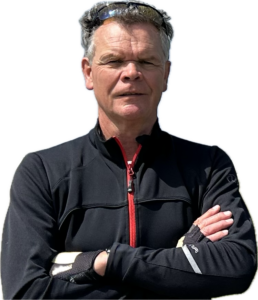
What motivated you to contribute to the establishment of the Limburg Youth Sports Fund?
Sport has given me so much personally. I've worked in sports my whole life: as a sports physiotherapist at Swift women's handball and at Fortuna Sittard, as a sports physiotherapy instructor at Papendal, and as director of Fortuna Sittard and Huis voor de Sport. Besides that, sports are fun to watch, but even more so, fantastic to participate in yourself. Sports connect and teach you values and principles through play. By playing together, you discover new networks and meet new friends. I want every child to have that. Lack of money should never be an obstacle to leaving a child on the sidelines, figuratively speaking. Every child in Limburg should be able to PARTICIPATE in sports and culture. That is and was my motivation to establish the 'Limburg Youth Sports Fund' 20 years ago, together with Joep Verbugt (former chairman of the Youth Care Bureau), Huub Stevens (former football coach), and Frans Groutars (former notary).
What are the most important developments in 20 years of the Limburg Youth Sports & Culture Fund?
The so-called national Klijnsma funds from the Ministry of Social Affairs and Employment in 2017 ensured that municipalities received structural funding for, among other things, the Youth Fund for Sports and Culture. The merger of the Limburg Youth Fund for Sports and Culture and the Limburg Youth Fund for Culture in 2023, forming the Limburg Youth Fund for Sports and Culture, was an important step in joining forces and working more cost-efficiently.
Looking back on 'your' 20 years, what are you personally most proud of?
In 2006, then-Provincial Executive Member Odile Wolfs provided an annual subsidy as co-financing to encourage municipalities to become partners with the Limburg Youth Sports Fund. In addition, supermarket chain Jan Linders donated €85,000 to the fund upon the opening of their former Warehouse. This laid the foundation for the current Youth Sports & Culture Fund.
I'm also incredibly proud of the support over the past few years from all the board members, volunteers, intermediaries, all our ambassadors – Bert van Marwijk, Sjeng Schalken, Emma Kok, Luuk Hoiting, and Nils Röseler – the business community, and other donors. Over the past 20 years, the Limburg Youth Fund has been able to support over 66,000 children. That's now approximately 6,800 children annually. It shouldn't be possible in a wealthy country like the Netherlands, but I'm glad we can contribute. We're not solving poverty, but we can help children PARTICIPATE.
What do you think is needed to reach all children in the future and enable them to participate?
More than 20,000 children in Limburg live in under-resourced families. Of these, only 7,000 to 9,000 children are reached. Only through intensive collaboration with other child welfare partners, such as the Leergeld, Youth Education Fund, National Child Aid Fund, and Jarige Job foundations, can we reach even more children. As the Youth Fund for Sport & Culture, we will primarily focus on education. We will capitalize on the development of School en Omgeving with the extended school day. At school, all children can experience sports and culture. We need to build a network here, together with school coordinators and bridge officers, to guide children to otherwise organized (or unorganized) sports and cultural providers and activities. Only by working together and monitoring developments can we take a step in the right direction, allowing all children to experience the joy of sports and culture or earn a swimming diploma.
The Leergeld Foundation and the Youth Fund for Sports and Culture help children living in poverty so they can participate in sports, cultural activities, or school activities just like their peers. Gelderland spoke with Tanja van Driel (social worker at Putten voor elkaar / Municipality of Putten and intermediary at the Youth Fund) and Heleen Remijn (coordinator at the Leergeld Randmeren Foundation) about common ground and wishes for the future.
Who are you and what do you do?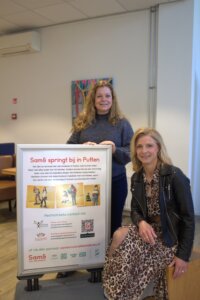
Tanja: I'm a social worker at Putten voor Elkaar and, in this role, also an intermediary with the Youth Fund for Sports & Culture. Putten voor Elkaar is the social work organization in Putten. My areas of expertise include improving basic skills (language, math, digital skills), combating poverty, and organizing meetings about meaning-making. This role aligns perfectly with my role as an intermediary with the Youth Fund.
Helen: "I'm the coordinator for the Leergeld Randmeren Foundation in Putten. Together with three intermediaries, we're active in Putten for children between the ages of 4 and 17 who are struggling financially at home."
What does your foundation and fund stand for?
Tanja: We ensure that residents can (continue to) participate in Putten's community. The municipality of Putten wants all Putten residents to be able to actively participate in the community. And that they receive the right support quickly and effectively when needed. This desire led to the creation of Putten for Each Other. In this role, I also act as an intermediary with the Gelderland Youth Fund for Sports and Culture, enabling children and young people from low-income families to participate in sports or cultural activities.
Helen: The Leergeld Foundation helps families with financial worries in the Netherlands. Our foundation ensures these children have the same opportunities as their peers. For example, we help with school supplies, a laptop, swimming lessons, or a bicycle. You can participate through Leergeld in four different areas: education, sports, culture, or well-being.
Is there ever any friction because you both support the same target group?
Tanja: "No, we complement each other and have a very good working relationship. We collaborate on promotional activities and brainstorm with each other about applications that come in. In addition, all the children in my Youth Fund file who were under 18 have transferred to Sam& and are now being supported by the Leergeld Randmeren Putten Foundation."
Helen: The beauty of the partnership with the Gelderland Youth Fund for Sport & Culture is that we leverage our knowledge and resources. While the Youth Fund provides financial opportunities for children to participate in sports, Leergeld can offer that little bit extra by paying for the necessary sports equipment or clothing. Or if the Youth Fund pays for a child's guitar lessons, Leergeld can pay for the guitar, allowing the child to practice comfortably at home.
Do you have a good example of the collaboration/interconnections between the Youth Fund for Sports & Culture and the Leergeld Foundation?
Tanja: We create PR together and regularly come up with new campaigns. Last year, Putten voor Elkaar purchased a portable billboard. We started designing A1-sized posters with the Sam& back office. The billboard has already been displayed at local sports clubs and a thrift store, and in May 2024, it will be on display at another thrift store for a month. A volunteer from the Leergeld Foundation always makes sure the billboard gets from A to B.
Helen: "It's been truly special to discover, together with Tanja, that there are so many opportunities to join forces, and that's especially true now that Sam& has also established a presence in Putten. This allows us to better support families in need and connect them with the right support Putten has to offer."
What do you hope to achieve in your community with the help of the Youth Fund/Leergeld Foundation?
Tanja: "That people simply apply if they're entitled to it. We're noticing that people still find it a big step to apply."
Helen: We hope that the Leergeld Foundation and the Youth Fund for Sports & Culture can work together to help even more children, thus contributing to their healthy development, especially those struggling at home. And that parents who need help will be able to find us more easily.
What are your wishes for the future?
Tanja: We wanted young people turning 18 to be able to continue with the activities they were able to do thanks to the funds. Since January of this year, the Adult Fund has also been available in Putten. This allows young people aged 18 and older to continue playing sports or taking their cultural lessons, because unfortunately, poverty doesn't end after you turn 18.th birthday.
Helen: We believe that sports clubs in Putten can certainly make an active contribution in identifying children who may be eligible for support from the Leergeld Foundation and the Youth Fund. So, a great goal for the future would be to reach them even more effectively, so we can reach more children and ensure that all these children can continue to participate.
Petra Bosman will be the new director of the Youth Fund for Sports & Culture, effective April 1, 2023. She enjoyed leading the Police Services Center, which manages the operations for police forces throughout the Netherlands, for over 25 years. However, she chose to apply for a position at the Youth Fund. "Sometimes an opportunity comes along that makes you think. The opportunity to lead the Youth Fund is one of those."
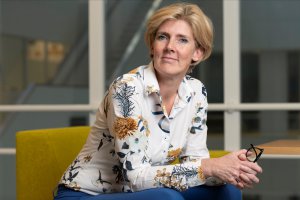 Petra: “There is a lot of inequality in the Netherlands, as was recently confirmed in a study by the Central Planning Bureau. To follows the CPB to live in 2024 nearly one million people below the poverty line and this has huge impact on hundreds of thousands of children and young people. Parents may be forced to cut back on their football club, gymnastics or dance lessons for their children. That makes our work only more relevant because the Youth Fund can keep sports and culture accessible and make them accessible for children.”
Petra: “There is a lot of inequality in the Netherlands, as was recently confirmed in a study by the Central Planning Bureau. To follows the CPB to live in 2024 nearly one million people below the poverty line and this has huge impact on hundreds of thousands of children and young people. Parents may be forced to cut back on their football club, gymnastics or dance lessons for their children. That makes our work only more relevant because the Youth Fund can keep sports and culture accessible and make them accessible for children.”
Children learn a lot at the club
A policewoman as the fund's new director. That doesn't seem very obvious. "It is," laughs Petra. "But if you think about it a bit longer, there are definitely parallels with my current position. I'm more aware of the contradictions in society than anyone else. A defining moment for me was in the late 1990s when the then-chairman of the KNVB (Royal Dutch Football Association) during a visit to the police force calculated how many children are on the football field on Wednesday afternoons. And that when those children are on the field, they're not somewhere else. They're at their club where, in addition to their sport, they learn all sorts of things about behavior and what it means to be a team player. That's when the seed was planted in me of how important it is for children to belong and develop, instead of being bored or hanging around in places that might not be appropriate."
Anchoring in society
Another parallel between Petra's current and new roles is that the Police Services Center where she worked also works in and for police forces nationwide. Just as the national office for funds and children works nationwide. Does she think she'll benefit from that experience? "Numerically, I'm giving up 65,000 colleagues for 65,000 children," says Petra. "But of course, it goes much further than that. The Police Services Center makes good police work possible. We handle everything: from IT to housing. It's a facilitating role. That's also the role the national office plays in relation to the funds nationwide. The local funds simply know best what's going on in their own area, just like the police. That local anchoring in society is so important—close by, where it's happening!"
Super relevant
Sports and culture are important for children. Yet, we often see the emphasis primarily on sports. How does Petra see this? "A child should be able to pursue their passion, whether it's making music or playing football. Developing yourself by doing something you enjoy is incredibly important. Introducing children to theater or music costs money. Families in our target group are therefore less likely to encounter these activities than children on a local pitch. Moreover, the cultural landscape is fragmented; there are no federations like in sports. That makes things more complicated, and we need to look at that carefully."
I was given the opportunity at home and was always encouraged to play sports and piano. Theater visits were also a regular part of the program. The same applies to our sons; one plays soccer at a high level, the other in a friends' team. It doesn't matter. It's about fun, exercise, and participation. Now that they're almost adults, they take on different roles at the soccer club. One coaches the little ones, the other fills the club's coffers. Club life, that community involvement, is so important.
Serving and facilitating
Are there any things on Petra's to-do list that she wants to tackle first as director of the Youth Fund? "I mainly want to start by getting to know everyone and listening carefully to them, both at the national office and with the coordinators and boards across the country. I consider myself a servant and facilitating leader. I give people space and see where I can add value."
What puzzles me is the gap between the Youth Fund's financial position and the group of children it could potentially help. How can we reach these children with a realistic ambition? What strikes me is that there are so many players on the same social playing field, all with the same goal: helping children. How can we strengthen each other without feeling like we're competing? I find that a fascinating question. Ultimately, it's about working together to ensure that all children can participate. The Youth Fund is truly an organization close to my heart. I'm really looking forward to working with it. I'm so excited!
Facts & numbers
children and young people became members of a club through us in 2024.
in 2024, children and young people became members of a sports club through us.
in 2024, children and young people became members of a cultural club through us.
issued sports and cultural equipment in 2024.
